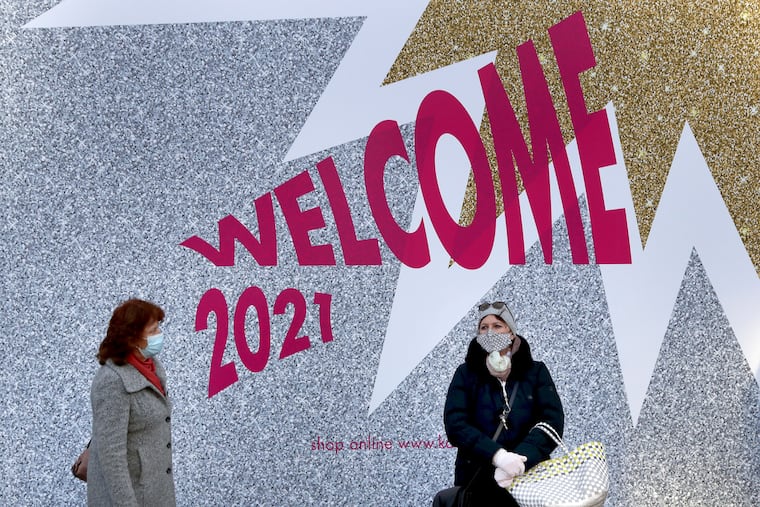2021 must be the Year of Public Health | Editorial
If 2020 reminded us of anything, it is that public health is inextricably tied to economic and environmental health.

While we can all breathe a sigh of relief that the horrible year of 2020 is finally over, it’s over only on the calendar.
2020′s reality unfortunately remains with us. Industries are decimated, as are many budgets. A surge in coronavirus cases has once again overwhelmed the health-care system, and while vaccines are here, the government’s response to the outbreak to date does not offer much optimism that vaccinations of the majority of the U.S. population will run like a well-oiled machine.
So for at least a while, we will still be updating the grim numbers of daily casualties.
Unfortunately, the nearly two million lives lost to COVID-19 — about 350,000 of those in the United States — are not the full extent of the pandemic’s casualties.
» READ MORE: The coronavirus pandemic is killing people with diabetes or Alzheimer’s who didn’t even contract the virus
In 2020, the entire structure of society was challenged. Support systems collapsed, jobs vanished, and loneliness and despair took hold. The result was increases in gun violence, overdose deaths, and suicide. In Philadelphia alone, the city lost nearly 500 of its residents to homicides.
America’s insufficient health-care system failed more people than ever, as Alzheimer’s and diabetes deaths rose even among people who did not contract coronavirus. And environmental catastrophes including wildfires and hurricanes took additional tolls on human life. All told, 2020 has been by far the deadliest year in recorded U.S. history — a devastating hit for a country that already experienced declines in life expectancy in recent years.
That is why 2021 must be the Year of Public Health. It must be the year to recommit to the most basic promises of a society: to protect, and not imperil, the lives of all its members.
2021 should be the year in which the primary focus of government shifts to protecting and improving the health of the people and the planet. If 2020 reminded us of anything, it is that public health is inextricably tied to economic and environmental health.
» READ MORE: Could raising the minimum wage help save lives? | Editorial
Nationally, that means expanding health care to all, increasing federal funding for social programs, rejoining the Paris Climate Accord, and not only ending the U.S. climate retreat under Donald Trump but implementing more regulations on the biggest emitters. For Pennsylvania, that means tax revenues should go to supporting people and not racehorses, increasing the minimum wage, and finally valuing the health of communities and the environment more than rosy promises of energy-industry executives.
Locally, Philadelphia needs to aggressively invest in public health models that address racial inequities and their impact on mortality. Programs such as PHL Rent Assist that were created during the pandemic can’t disappear when the pandemic is behind us. The need for more help existed before the coronavirus, and it will exist after.
2020 showed us how fragile the social safety net is, that too many people are living too close to financial ruin, and that a crisis is always better to avert than deal with. In 2021, there is an opportunity to get on a new and more resilient path. It won’t be easy, but it will be a lot less painful than the next crisis that we fail to prevent — or at least prepare for.